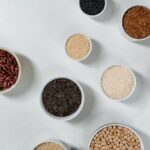Inflammation serves as a critical risk factor for numerous chronic illnesses, including cardiovascular diseases, prompting considerable interest in the relationship between diet and inflammatory processes. Historically, guidelines advising reduced red meat intake have partially stemmed from earlier research indicating its potential to exacerbate inflammation. However, more contemporary studies have cast doubt on these findings.
Dr Alexis Wood, an associate professor of paediatrics – nutrition at the USDA/ARS Children’s Nutrition Research Center at Baylor College of Medicine and Texas Children’s Hospital, highlighted the inadequate exploration of the dietary impacts, including those of red meat, on inflammation and subsequent disease risks. According to Dr Wood, this research gap sometimes leads to public health guidelines lacking robust evidence. To address these concerns, Dr Wood and her team embarked on a detailed study leveraging metabolite profiles in the bloodstream, which offers a more direct gauge of the diet-health nexus.
The research involved analysing cross-sectional data from around 4,000 elderly participants of the Multi-Ethnic Study of Atherosclerosis (MESA), with findings recently documented in The American Journal of Clinical Nutrition. Cross-sectional studies provide valuable insights as they observe dietary effects in free-living individuals without altering their habits, making the findings more applicable to general settings. The study not only took into account the self-reported nutritional intakes of participants but also examined various biomarkers and a broad spectrum of dietary intake metabolites found in the blood. These plasma metabolites reflect the dietary impact post-digestion and absorption.
Interestingly, the results indicated no direct correlation between the consumption of both unprocessed and processed red meats (such as beef, pork, or lamb) and inflammation markers once adjustments were made for body mass index (BMI). This suggests that it is body weight, rather than red meat intake, that might influence systemic inflammation levels. Notably, no association was found between red meat consumption and C-reactive protein (CRP), a critical inflammatory marker linked to chronic disease.
Dr Wood’s findings underscore the significance of utilising plasma markers like metabolites to trace the links between diet and disease risk rather than relying solely on self-reported dietary data. The study concluded that there isn’t enough evidence from observational research to link red meat consumption with increased inflammation.
She pointed out that observational studies are not designed to prove causation, hence the necessity for randomised controlled trials (RCTs) where individuals are randomly assigned dietary variations to conclusively determine the impact of red meat on inflammation. Several RCTs have already shown that lean, unprocessed beef can fit within heart-healthy diet regimens.
Dr Wood advocates for further research before any definitive recommendations regarding reducing red meat consumption and inflammation. This ensures that such dietary advice is founded on current scientific evidence. She emphasised the cultural significance and widespread consumption of red meat, arguing that any recommendations to limit its intake should be solidly supported by scientific proof, which is currently lacking.
More information: Alexis C. Wood et al, Untargeted metabolomic analysis investigating links between unprocessed red meat intake and markers of inflammation, American Journal of Clinical Nutrition. DOI: 10.1016/j.ajcnut.2023.08.018
Journal information: American Journal of Clinical Nutrition Provided by Baylor College of Medicine








